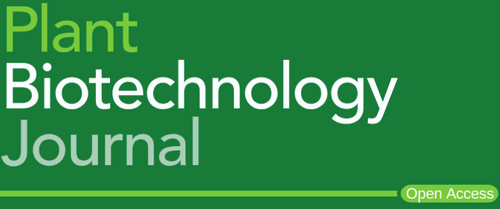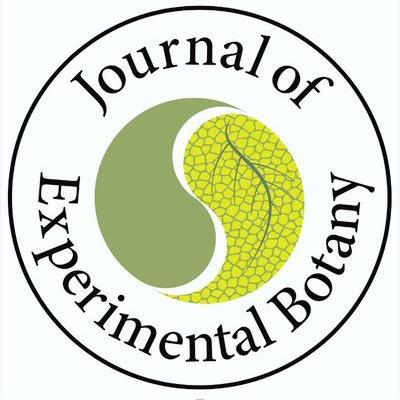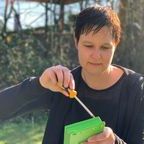Plant
The Session information is still subject to change.
P1 - Accelerating progress in plant science via AI approaches.
Session Description
The advent of high throughput phenotypic platforms, powerful remote sensing systems, and versatile hand-held devices now routinely applied in plant sciences has resulted in a plethora of multi-view, multi-modal heterogenous data sets. While mining of these data have already generated mechanistic insights in key biochemical processes driving plant development, growth, and reproduction as well as data-driven approaches important for breeding and biotechnological data, we argue that there is an untapped potential for usage of AI that can further accelerate progress in plant sciences. The session topic will cover recent advances in hybrid modeling that combines newest advances in AI with the existing knowledge of molecular mechanisms, represented in a form of networks, and will illustrate how these developments have contributed to innovations in breeding and plant biotechnology as well as generation of new knowledge in plant molecular and cell biology.
Proudly sponsored by Plant Biotechnology Journal and Journal of Experimental Botany


P2 - Poisonous Plants
Session Description
This session brings together scientists studying the production and regulation of toxic natural products that are poisonous to other organisms, including humans with wide implications for crop production and ecological interactions. Climatic changes influence plant toxicity, and the ability of organisms to detoxify the natural products, calling for urgent solutions. Some staple, poisonous crops cause disease if not appropriately processed, while bitterness or toxicity prevents the wider establishment of emerging foods.
Detoxification of food crops can be achieved through latest molecular techniques, breeding and management. Manipulation of toxicity traits may affect other aspects of plant metabolism, yields, and downstream ecological processes, but these interactions are poorly understood. This session will examine the interaction between “poison-related” plant traits and solutions for improvement amongst current and future global challenges, including emerging and staple foods, and ecosystem dynamics. The session should interest plant and animal scientists and molecular biologists
This session is sponsored by Annals of Botany

 P3 - PEPG - Bridging the gap: connecting photosynthesis research from controlled environments to the field
P3 - PEPG - Bridging the gap: connecting photosynthesis research from controlled environments to the field
Session Description
Controlled environments are important for experimentation, allowing for precise control of conditions that impact fundamental plant processes, such as photosynthesis. Most of our understanding of plant photosynthesis is in response to singular environmental factors, such as a change in temperature, light, or CO2. Greater effort needs to be placed in understanding how photosynthesis responds to multiple concurrent environmental factors, which is more representative of field conditions. Here, we aim to generate a space where researchers - working from mechanistic growth-chamber focused experiments to those reproducing field conditions in controlled environments – can present their work and stimulate discussions on better breaking down the “real-world” conditions experienced by plants.
Proudly sponsored by Journal of Experimental Botany

P4 - Cytoplasmic Genetics: From shaping plant traits to driving speciation
Session Description
Chloroplasts and mitochondria are bioenergetic organelles hosting key cellular processes including photosynthesis and respiration. One common feature of these organelles is that they both contain their own genetic material known as cytoplasmic genomes.
In this session, we will explore the significance of cytoplasmic genetics, highlighting its influence on:
- Plant physiology and traits
- Cytonuclear and environmental interactions
- Speciation and evolution
- Breeding and agricultural innovation
Overall, this session serves to advance our understanding of how these ancient endosymbionts DNA shape modern-day plants.
.
The session is proudly sponsored by Journal of Experimental Botany

P5 - From the Micro to the Macro: Fine Tuning Stomata to Maximise Global Crop Resilience
Session Description
Stomata are microscopic gatekeepers that regulate plant gas exchange with the environment. By adjusting pore area in response to a multitude of stimuli, stomata enable vast and rapid decision-making capacity, which helps optimise plant growth and resilience. Over longer durations, plants adjust stomatal size and/or density to adapt to their environment. This session will have a broad scope, combining molecular-level stomatal biology and crop physiology, with associated studies incorporating crop phenotyping, modelling and remote sensing. Conceptual stomatal research in non-crop and model species is welcomed, with the overarching theme of discussions to focus on developing climate-resilient crops for future agriculture.
P7 - Plant Phenomics : Beyond The Platforms
Session Description
High throughput plant phenotyping emerged 2 decades ago as an enabling technology. It is now an interdisciplinary field that integrates plant biology, data science, engineering, and artificial intelligence to understand plants, crops, and (agro)ecosystems behaviour, growth, and development under various environmental conditions. This session aims to illustrate the many usages, challenges, and avenues associated with plant phenomics including (non-exhaustively) abiotic and biotic stress responses analysis, (pre)breeding, variety testing, GxExM analysis, or models for prediction. It also aims at showcasing connections with envirotyping as well as with other omics / big data approaches.
Proudly sponsored by Journal of Experimental Botany

P8 - Gravitropism and plant architecture
Session Description
Plant architecture has been of interest to plant breeders for centuries, as its manipulation has the potential to lead to the development of resilient crops that can withstand various environmental stresses. Understanding how the graviresponse shapes plant architecture enables the development of crop varieties, and so far, model plant species have provided fundamental knowledge on this. The session will focus on fundamental and applied research, on how the universal force of gravitropism shapes plant form, and overall plant architecture. Talks are welcome from a range of topics including biophysical and molecular genetics in model plants and commercially relevant crops.
P9 - Plant Engineering Strategies For Achieving Sustainability Goals: From Models to Lab to Field
Session Description
Engineering plants is a critical avenue being explored to address several key global challenges, including food security, environmental sustainability and climate resilience of agricultural systems, carbon capture and storage, nutritional enhancement, and others. This session will focus on how plants are being or could be engineered to address these global challenges as well as assess expected impacts if implemented at a large scale. Experimental (including lab, greenhouse, and field experiments), modeling, and other computational studies are all of interest and studies that integrate two or more of these approaches are particularly encouraged.
The session is sponsored by Plant Biotechnology Journal

P10 - Open Plant
Session Description
The Open Plant session provides a home for presentations of current research from across the plant experimental biology community. The session welcomes diverse submissions that fall outside the remit of the other sessions and offers an opportunity for conference attendees to present posters or talks at the annual main meeting.




















































































